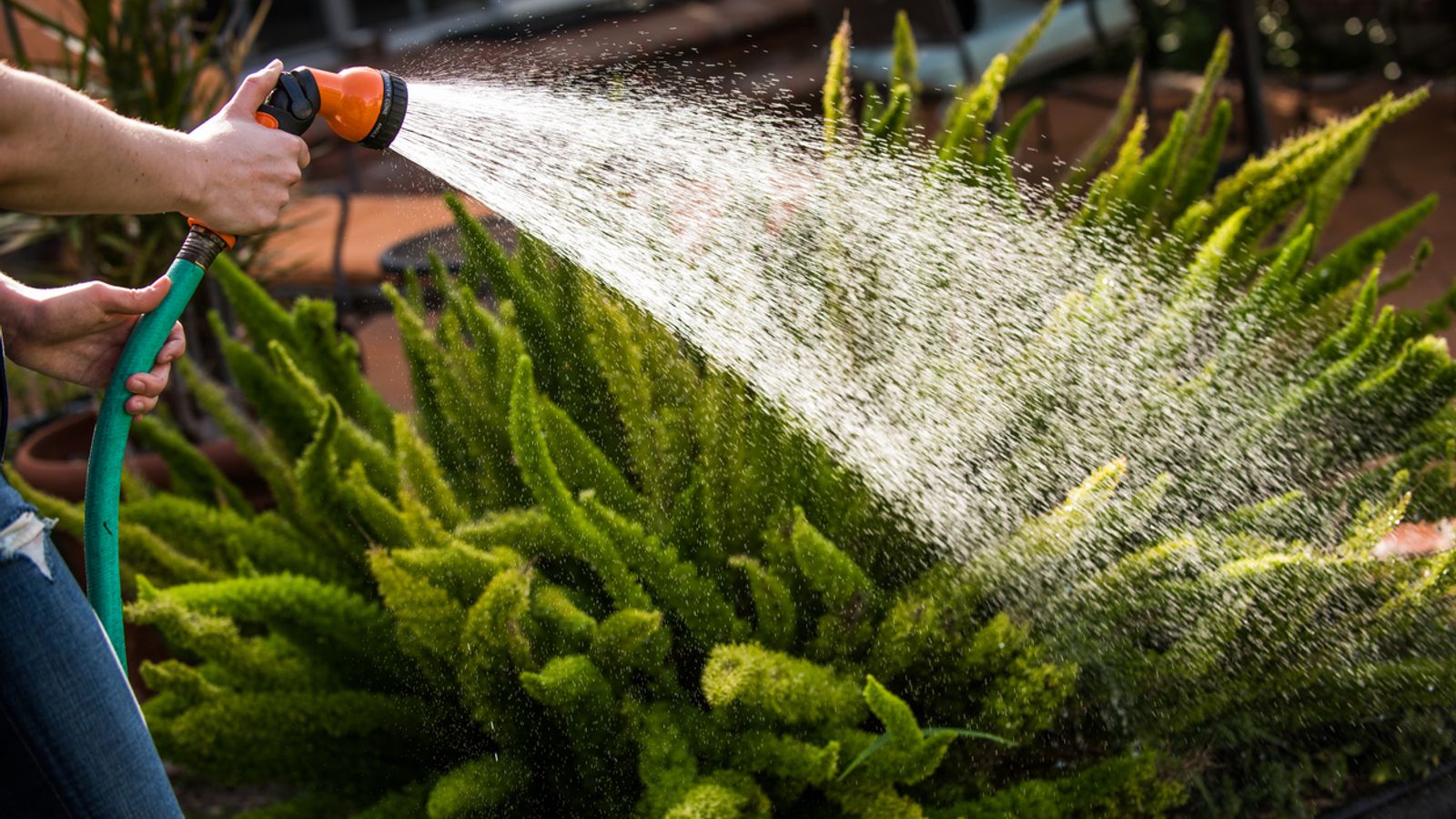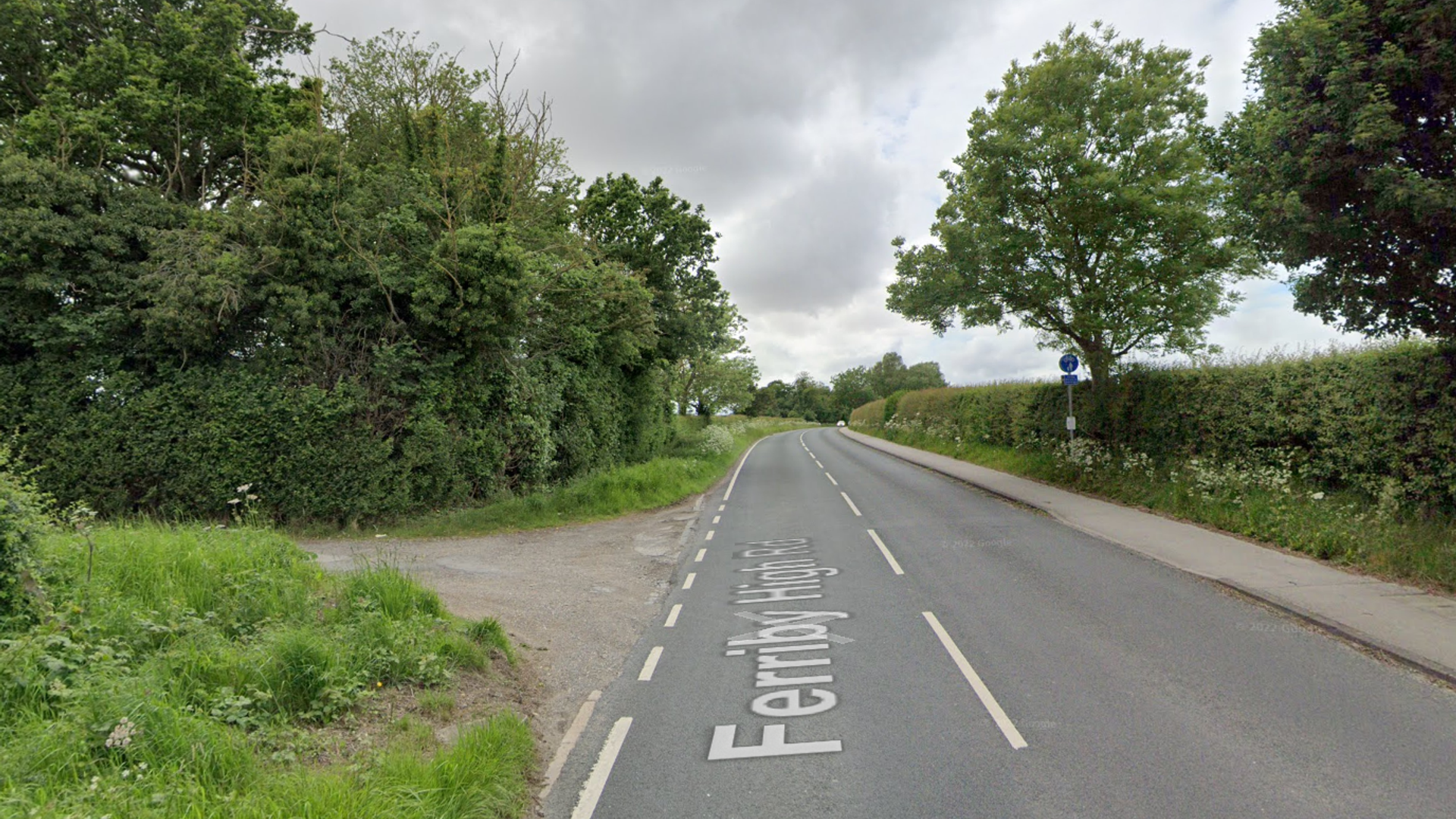Hosepipe bans could last “well into next year” unless there is above average rainfall during the autumn and winter, water customers have been warned.
Thames Water told Sky News “a lot more rain” is needed to return “water levels back to normal” following one of the driest years on record – and a hosepipe ban will remain in place “to make sure there’s enough water to go around”.
Record-breaking heat and low rainfall sent large parts of the country into drought conditions during the summer.
On the possibility of a ban stretching well into 2023, a spokesperson said: “This will depend on the weather. We’ve had nearly a year’s worth of below average rainfall and our rivers and groundwater needs a lot of refilling.
“We need our autumn and winter months to give above average rainfall, so that our water reserves can get back to normal levels, ready for spring and summer next year.”
Thames Water supplies nearly 10 million people across London and the Thames Valley.
The company added: “We want to thank our customers for helping us to save water since we introduced the temporary use ban last month.
Thames Water hosepipe ban comes into force – affecting millions of people
Thames Water says hosepipe ban for its customers to start next week
Thames Water fined record £20.3m for massive sewage spill
“However, despite recent rain and our ongoing hosepipe ban there’s still much less water in our rivers than usual.
“This year has been one of the driest on record, with 10 of the last 12 months experiencing below average rainfall.
“Our reservoir levels continue to remain below average and a lot more rain will need to fall to get our water levels back to normal.”
It comes as Yorkshire Water told its customers the hosepipe ban could continue “well into” 2023 if there is a dry winter.
The firm’s first ban in 27 years came into force on 26 August when it said hot, dry weather and “the lowest rainfall since our records began more than 130 years ago” caused reservoir levels to fall below 50%.
Yorkshire Water’s Neil Dewis said average levels at the region’s reservoirs have plunged to 35%, adding one West Yorkshire reservoir was only about 20% full.
Read more:
What are the rules on hosepipe bans?
He told the BBC: “I think the hosepipe ban will remain in place for several more months and, if it is a dry winter, it will be there well into next year.
“But Yorkshire Water is focused on next spring and summer.
“Because even if we get a normal amount of winter rainfall, that will only lift reservoirs up to 60 to 70% by spring.
“And if that’s the case and we have another dry, hot summer, we could really face some serious consequences.”
Water companies have been criticised for the number of leakages across their networks – and for pumping raw sewage into the UK’s waterways, which prompted warnings for people to avoid dozens of beaches.












